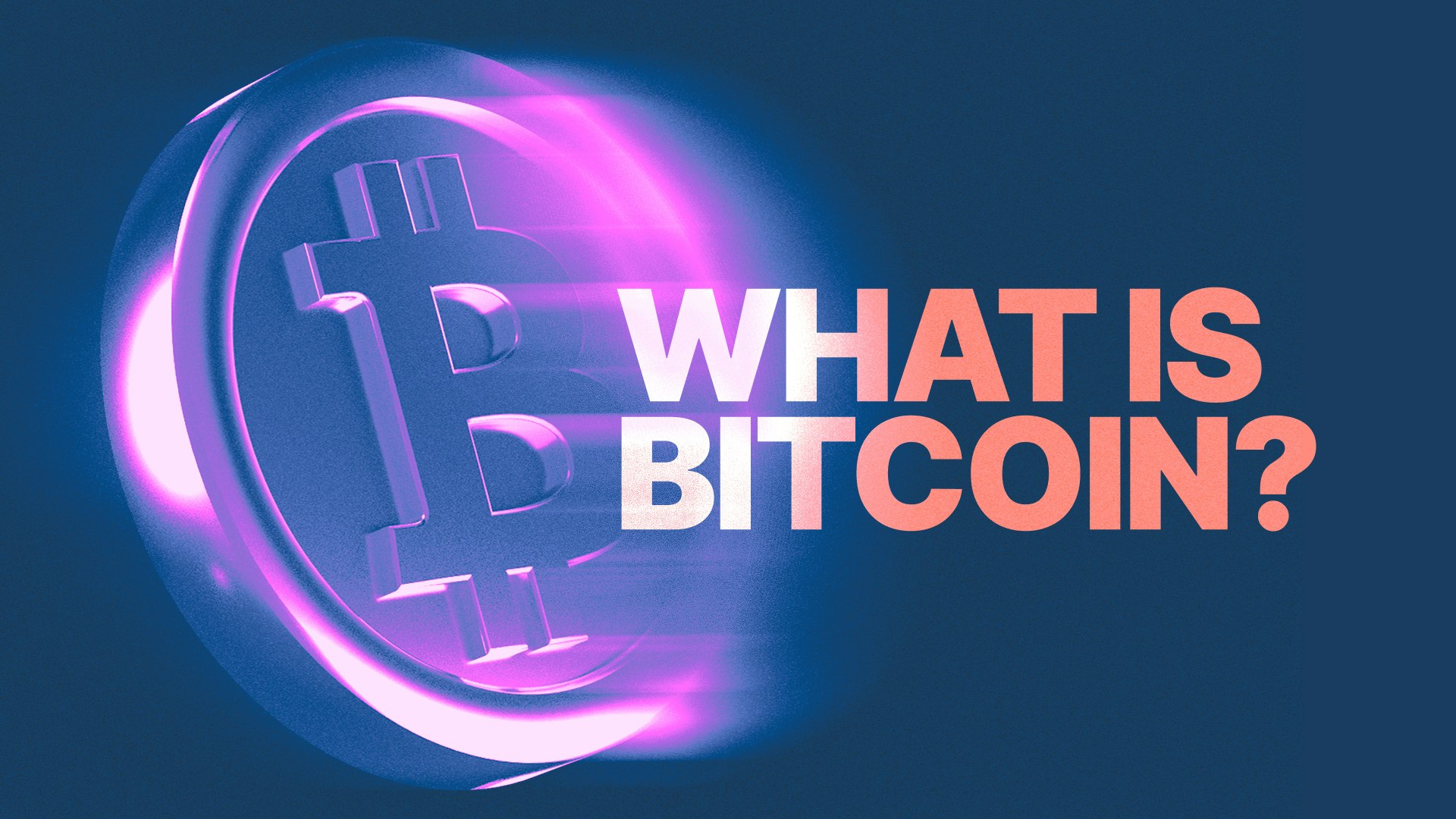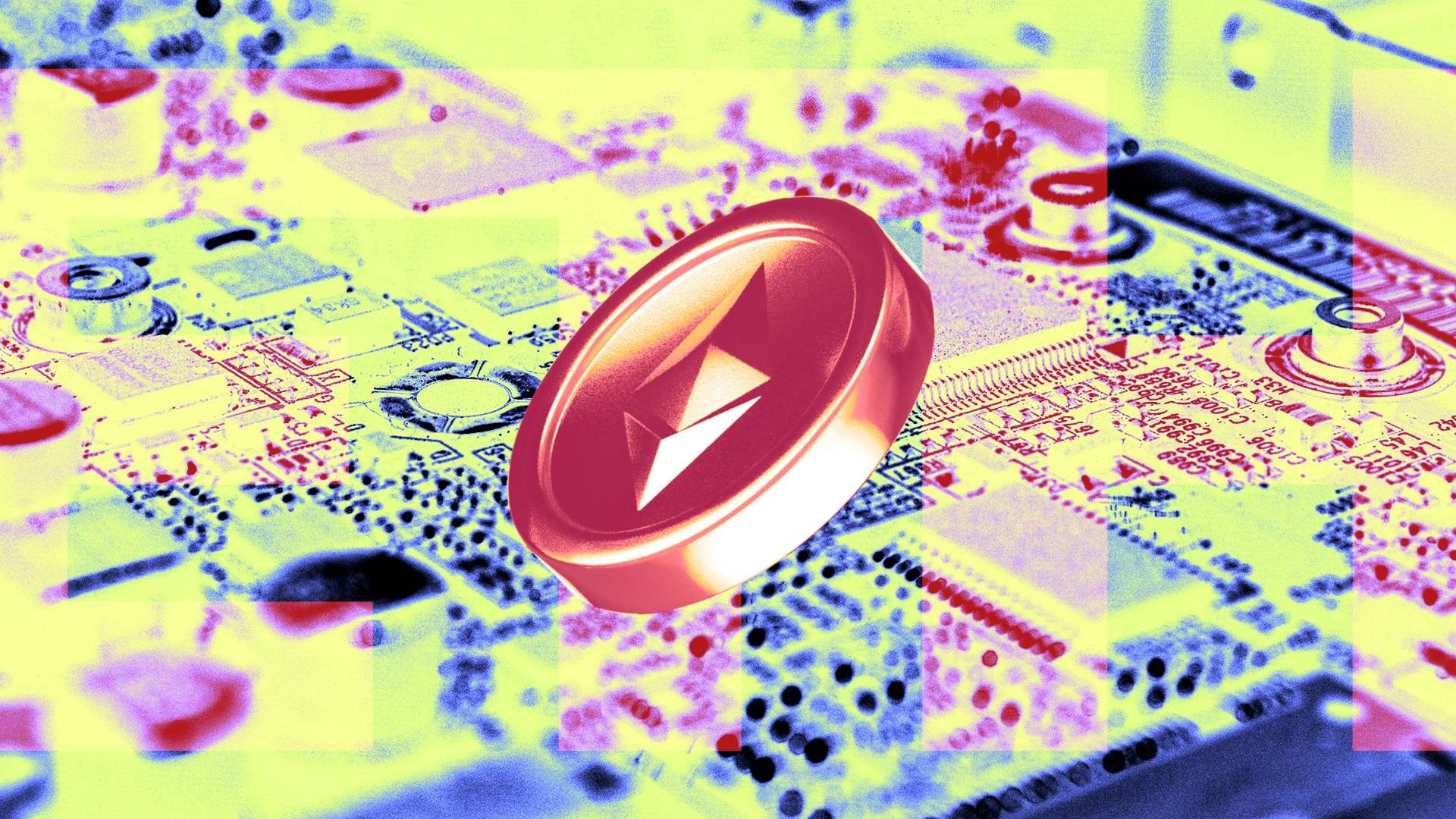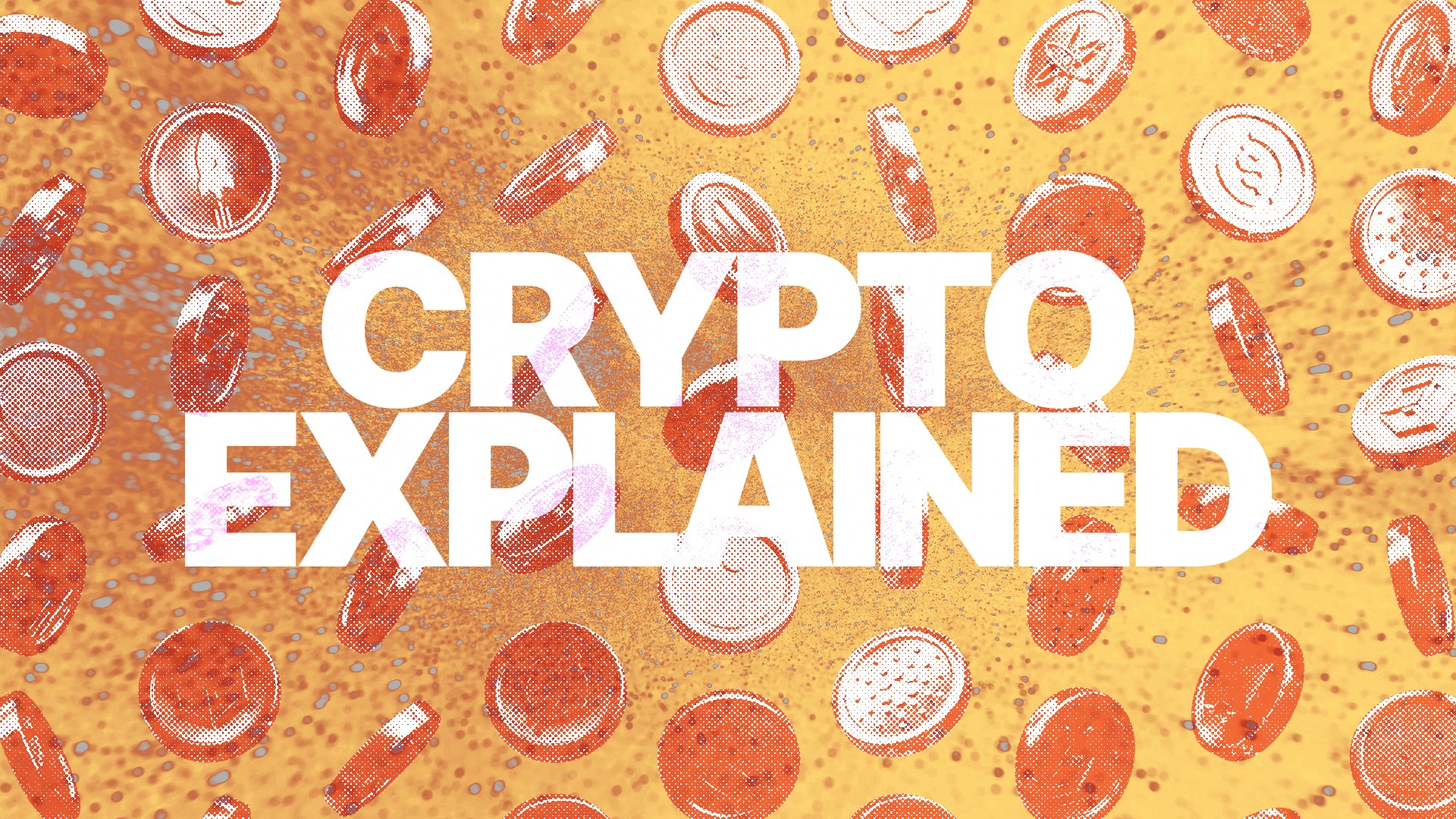Don’t invest unless you’re prepared to lose all the money you invest. This is a high‑risk investment and you should not expect to be protected if something goes wrong. Take 2 mins to learn more.
What is Polkadot? Answers to Your Crypto Queries About DOT
Got some burning questions about the crypto DOT? Here are the answers to your Polkadot queries.
In this article...
- What is Polkadot?
- What is DOT used for?
- Here are your biggest questions answered!

Polkadot (DOT) is a multichain network that connects various blockchains, allowing them to communicate and share information. It’s like a fabric of interconnected dots, each representing a unique blockchain.
Where is DOT headed?
The ecosystem is vibrant and expanding. New projects, collaborations, and use cases emerge regularly.
As more parachains join, the network becomes more popular with the possibility of growing in strategic importance within the crypto world. This may result in a positive return for speculative investors and users.
Many people who invest in DOT see themselves positioning their investment for tomorrow. Interoperability will be a critical factor as the crypto landscape evolves. However, although it is a promising project, no one knows for sure what will happen in the future.
What is the Relay Chain?
The Relay Chain is the heart of Polkadot. It coordinates communication between different parachains (the individual blockchains within Polkadot).
The relay chain and parachains
Polkadot’s architecture revolves around the Relay Chain. Around it orbit various parachains — individual blockchains with specific uses. These parachains can specialise in anything from decentralised finance (DeFi) to gaming or identity management.
Because Polkadot doesn’t have apps on it, it’s called a zero layer, because it is a foundation layer.
But the parachains around it do have dApps (apps made on a blockchain rather than the internet). Here are some really cool parachains to look into.
Imagine Polkadot as a bustling city with different districts, each serving a unique purpose. It's like the Relay Chain ensures seamless communication between these districts.
Scalability and efficiency
By spreading transactions across multiple parachains, it achieves efficient processing and resource use. Unlike congested highways during rush hour, Polkadot’s lanes remain open and efficient.
Substrate
Developers can create their own parachains using the Substrate framework. It’s like building with Lego blocks — assemble your unique blockchain, connect it to Polkadot, and benefit from the network’s security and interoperability.
This flexibility encourages innovation and rapid development.
How can I buy Polkadot (DOT) tokens?
You can purchase DOT tokens on a cryptocurrency exchange. Use your bank account, debit card, or even a bank transfer to acquire DOT.
What is the purpose of Polkadot?
Polkadot aims to solve scalability and interoperability challenges faced by traditional blockchains. It enables seamless interaction between different blockchains, fostering innovation.
Is Polkadot a digital asset?
Yes, DOT tokens are digital assets within the Polkadot ecosystem.
Can I buy or sell DOT on a crypto exchange?
You can trade DOT on any reputable crypto exchange.
What affects the price of Polkadot?
Like any other asset, DOT’s price is influenced by supply and demand dynamics, market sentiment, and overall crypto trends.
How does the Polkadot protocol work?
Polkadot’s protocol ensures interoperability by connecting parachains through the Relay Chain. It also allows for easy blockchain innovation using the Substrate framework.
Is Polkadot for investment purposes only?
While Polkadot has investment potential, it’s essential to understand its technology and long-term vision. Always do thorough research before investing.
Is Polkadot a good investment?
It depends on your goals.
Polkadot is a next-generation blockchain network that is secure, scalable, decentralised, and multi-chain. It connects blockchains, facilitating the exchange of data and value between previously incompatible networks (such as Bitcoin and Ethereum) in a trustless way.
Polkadot’s innovative concepts for scalability, interoperability, governance, and blockchain code updates have earned it the nickname the “Ethereum killer”. This could make it a good investment, but if that doesn't happen then it may not. Nobody knows what will happen in the future.
How can I buy Polkadot using a bank transfer? What’s the process for buying DOT?
To purchase DOT using a bank transfer, download the CoinJar app. Verify your ID, and then deposit funds from your bank account to the exchange. Use the deposited amount to buy Polkadot (DOT). It will then appear in your CoinJar wallet.
What is the Polkadot Network?
The Polkadot Network is a platform that enables interoperability between different blockchains. It allows various chains (called parachains) to connect and share information. Polkadot’s architecture promotes scalability and flexibility, making it distinct from other blockchains.
How do cryptocurrency prices affect Polkadot?
Cryptocurrency prices fluctuate based on market demand, supply, and investor sentiment. Keep an eye on the current DOT price to make informed decisions.
Who are Parity technologies?
Polkadot was developed by Parity Technologies. They have made a groundbreaking blockchain technologies platform that revolutionises the way smart contracts and decentralised finance (DeFi) applications operate.
At its core, Polkadot employs a unique consensus mechanism known as Nominated Proof of Stake (NPoS), which allows token holders to actively participate in securing the network.
Through NPoS, nominators can stake their DOT tokens and nominate validators who play a crucial role in validating transactions and maintaining the blockchain.
Unlike traditional proof-of-work systems, the proof-of-stake consensus ensures scalability, lower transaction fees, and a more energy-efficient approach.
This innovative network fosters a peer-to-peer ecosystem where validators collaborate to achieve robust security and decentralisation, ultimately empowering the entire community.
How to Buy Polkadot (DOT)
If you’re interested in buying DOT through CoinJar, here’s a step-by-step guide.
Download the CoinJar App
First, download the CoinJar app on your iOS or Android device. You can find it on app stores.
Create an Account
Sign up for a CoinJar account within the app. Verify your identity. UK residents are required to do an assessment and then wait 24 hours (see below).
Payment method
After your ID has been accepted, you can then create an account on the exchange. After this is done, you can move normal everyday money like Pounds (fiat) via your chosen payment method into your crypto account.
Make a Purchase
Once your account is set up and verified, you’re ready to buy DOT. Use your card, or a bank transfer to deposit Sterling to your account in order to make the purchase.
CoinJar supports various payment methods, so choose the one that suits your investment risk appetite.
Remember, don’t put all your eggs in one basket. Putting all your money into a single type of investment is risky. A good rule of thumb is not to invest more than 10% of your money in cryptocurrency.
Congratulations! You’re now part of CoinJar, which has been in operation since 2013. Explore the app, research before you invest, manage your portfolio, and keep an eye on your investment.
Who is Gavin Wood?
One co-founder, Gavin Wood, played a pivotal role in Ethereum’s early days. His vision combines scalability, security, and innovation.
Conclusion
Polkadot is a platform built by the Web3 Foundation to enable the seamless transfer of any data or asset type, not just tokens, across different blockchains. This interoperability is achieved through the Polkadot work of sharding, allowing specialized blockchains to connect and communicate.
Initially outlined in a white paper by Peter Czaban (one of Ethereum's co-founders), Polkadot held a token sale in 2019 before officially launching in May 2020.
DOT holders play a key role in the development of Polkadot through governance, deciding on things like upgrades and network fees. This focus on decentralized applications (dApps) and interoperability sets it apart from traditional blockchains like Bitcoin (BTC).

Suggested Articles

What is Bitcoin (BTC)? What is "Digital Gold" Used For?
What is Bitcoin? It is a digital currency that can be traded, exchanged, and used as a form of payment independent of central banks and governments.Read more
What is Ethereum? What is ETH Used For?
Ethereum is a decentralised blockchain-based open-source software platform that allows for the development of decentralised applications (dApps).Read more
What Is Crypto? How do Cryptocurrencies Work?
Crypto has become incredibly popular. But how does this digital currency work? And are there cryptos other than Bitcoin? Read moreBrowse by topic
Standard Risk Warning: The above article is not to be read as investment, legal or tax advice and it takes no account of particular personal or market circumstances; all readers should seek independent investment advice before investing in cryptocurrencies.
The article is provided for general information and educational purposes only, no responsibility or liability is accepted for any errors of fact or omission expressed therein. Past performance is not a reliable indicator of future results. We use third party banking, safekeeping and payment providers, and the failure of any of these providers could also lead to a loss of your assets.
We recommend you obtain financial advice before making a decision to use your credit card to purchase cryptoassets or to invest in cryptoassets.
Capital Gains Tax may be payable on profits.
CoinJar's digital currency exchange services are operated in the UK by CoinJar UK Limited (company number 8905988), registered by the Financial Conduct Authority as a Cryptoasset Exchange Provider and Custodian Wallet Provider in the United Kingdom under the Money Laundering, Terrorist Financing and Transfer of Funds (Information on the Payer) Regulations 2017, as amended (Firm Reference No. 928767).
In the UK, it's legal to buy, hold, and trade crypto, however cryptocurrency is not regulated in the UK. It's vital to understand that once your money is in the crypto ecosystem, there are no rules to protect it, unlike with regular investments.
You should not expect to be protected if something goes wrong. So, if you make any crypto-related investments, you're unlikely to have recourse to the Financial Services Compensation Scheme (FSCS) or the Financial Ombudsman Service (FOS) if something goes wrong.
The performance of most cryptocurrency can be highly volatile, with their value dropping as quickly as it can rise. Past performance is not an indication of future results.
Remember: Don't invest unless you're prepared to lose all the money you invest. This is a high-risk investment and you should not expect to be protected if something goes wrong. Take 2 mins to learn more.
UK residents are required to complete an assessment to show they understand the risks associated with what crypto/investment they are about to buy, in accordance with local legislation. Additionally, they must wait for a 24-hour "cooling off" period, before their account is active, due to local regulations. If you use a credit card to buy cryptocurrency, you would be putting borrowed money at a risk of loss.
We recommend you obtain financial advice before making a decision to use your credit card to purchase cryptoassets or to invest in cryptoassets.
Your information is handled in accordance with CoinJar’s Privacy Policy.
Cryptoassets traded on CoinJar UK Limited are largely unregulated in the UK, and you are unable to access the Financial Service Compensation Scheme or the Financial Ombudsman Service.
We use third party banking, safekeeping and payment providers, and the failure of any of these providers could also lead to a loss of your assets.
We recommend you obtain financial advice before making a decision to use your credit card to purchase cryptoassets or to invest in cryptoassets. Capital Gains Tax may be payable on profits.
CoinJar’s digital currency exchange services are operated in the UK by CoinJar UK Limited (company number 8905988), registered by the Financial Conduct Authority as a Cryptoasset Exchange Provider and Custodian Wallet Provider in the United Kingdom under the Money Laundering, Terrorist Financing and Transfer of Funds (Information on the Payer) Regulations 2017, as amended (Firm Reference No. 928767).
Apple Pay and Apple Watch are trademarks of Apple Inc. Google Pay is a trademark of Google LLC.
This site is protected by reCAPTCHA and the Google Privacy Policy and Terms of Service apply.

